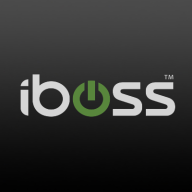

Cisco Umbrella and iboss compete in the network security category. Cisco has the upper hand in DNS-based protection, while iboss is noted for its capabilities in comprehensive traffic scanning and zero-trust features.
Features: Cisco Umbrella offers detailed domain history access, content filtering, and DNS security, providing protection against malware, botnets, and phishing with an emphasis on compliance. It is ideal for institutions with strict regulatory standards due to its DNS-based approach. Iboss excels in threat prevention, scanning all port traffic, providing granular control over social media and mobile applications, and offering ZTNA and SASE features, making it appealing for organizations focusing on zero-trust principles.
Room for Improvement: Cisco Umbrella users seek better user-level traffic monitoring, more detailed reporting capabilities, and improved pricing options, with suggestions for DLP integration and stronger integration with other Cisco products. Iboss could improve by enhancing endpoint feature integration, support, and reporting speed while expanding third-party application support and zero-trust feature configuration to boost network throughput.
Ease of Deployment and Customer Service: Cisco Umbrella and iboss support public, private, and hybrid clouds. Umbrella's cloud-based nature facilitates scalability and quick implementation. Iboss provides versatile deployment options with cloud and on-premises integration for diverse network architectures. Both have effective customer service, but Cisco's support is known for its comprehensive resources, while iboss is praised for straightforward, responsive support.
Pricing and ROI: Cisco Umbrella's pricing is high but justified by robust features and ROI from enhanced threat protection, with a complex but flexible model. Meanwhile, iboss offers competitive, transparent pricing, ideal for organizations with limited budgets, delivering cost-effective security for small to mid-sized enterprises. Both solutions deliver positive ROI, with Cisco showing value in larger organizations and iboss appealing to smaller enterprises.


Cisco Umbrella delivers rapid DNS security with over 30,000 customers, providing outstanding threat protection and handling more than 600 billion requests daily. It's recognized for high threat efficacy in the SSE domain and integrates elements like SWG, ZTNA, CASB, and more.
Cisco Umbrella is renowned for its effective DNS-layer security against ransomware and phishing. It offers flexible content filtering and integrates seamlessly with existing networks while providing single-pane-of-glass management for centralized monitoring. Its robust threat intelligence and customizable policies are central to its appeal. Users highlight room for improvement in areas like WHOIS data inclusion, malware enhancement, and reporting analytics. Integration with other threat feeds and better client support are requested for more comprehensive coverage.
What are the key features of Cisco Umbrella?Industries implement Cisco Umbrella primarily for DNS-level security, web filtering, and protecting remote employees. It strengthens cybersecurity frameworks by blocking malware and avoiding access to harmful sites. The tool is widely integrated with Active Directory and Cisco Meraki, providing consistent internet security for employees.
iboss offers a comprehensive security platform designed for diverse use cases such as web filtering, data loss protection, corporate proxy services, and URL filtering.
iboss integrates advanced features to address dynamic security needs, leveraging its strength in SASE, ZTNA, AI initiatives, and cloud integration, while ensuring seamless operations for remote work. It excels in historical forensics, malware protection, and flexible cloud deployments. Users benefit from comprehensive traffic scanning, robust malware detection, and PaaS capabilities that reduce hardware management. An intuitive admin console ensures efficient management with content filtering and low false positives. SSL decryption enhances security, while DLP protects data in AI conversations. Deployment is rapid and scalable, allowing effortless integration with emerging technologies.
What features does iboss offer?
What benefits and ROI should users consider?
iboss finds significant application in sectors such as education, where web filtering for K-12 is crucial, and in corporate environments requiring robust proxy services and URL filtering for network security. Its adaptability is essential in scenarios demanding flexible, decentralized security frameworks, particularly for remote work setups.
We monitor all Secure Access Service Edge (SASE) reviews to prevent fraudulent reviews and keep review quality high. We do not post reviews by company employees or direct competitors. We validate each review for authenticity via cross-reference with LinkedIn, and personal follow-up with the reviewer when necessary.